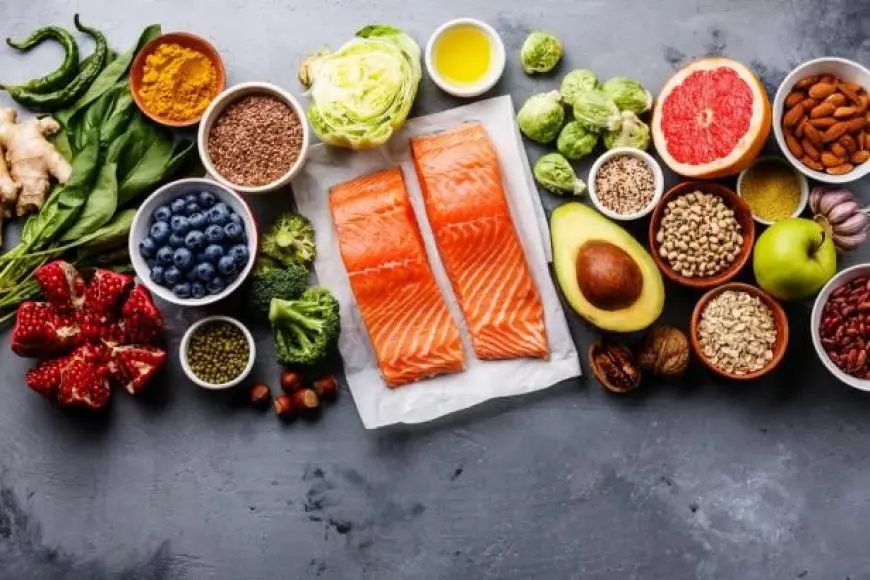How to Create a Balanced Vegetarian Diet
How to Create a Balanced Vegetarian Diet

Switching to a vegetarian diet or improving your current vegetarian eating habits can be a healthy and sustainable choice when done correctly. A balanced vegetarian diet provides all the essential nutrients your body needs while supporting ethical, environmental, and health-conscious goals. Here’s a guide to help you create a well-rounded vegetarian diet that meets your nutritional needs.
Understand the Basics of Vegetarianism
A vegetarian diet excludes meat, fish, and poultry but includes plant-based foods such as fruits, vegetables, grains, legumes, nuts, and seeds. Depending on the type of vegetarianism, you might also include dairy products and eggs.
- Lacto-vegetarian: Includes dairy but not eggs.
- Ovo-vegetarian: Includes eggs but not dairy.
- Lacto-ovo vegetarian: Includes both dairy and eggs.
Include a Variety of Protein Sources
Protein is essential for building and repairing tissues, but vegetarians need to get it from plant-based sources:
- Legumes: Lentils, chickpeas, black beans, and soy products like tofu and tempeh.
- Nuts and Seeds: Almonds, walnuts, chia seeds, and flaxseeds.
- Grains: Quinoa and oats provide additional protein.
- Dairy and Eggs (if included): Milk, yogurt, cheese, and eggs are excellent protein sources.
Prioritize Whole Grains
Whole grains are rich in fiber, vitamins, and minerals, providing long-lasting energy and improving digestion. Include:
- Brown rice
- Whole-grain bread and pasta
- Quinoa
- Barley
- Buckwheat
Eat a Rainbow of Vegetables and Fruits
Vegetables and fruits are vital for a balanced vegetarian diet as they provide essential vitamins, minerals, and antioxidants. Aim for a variety of colors to ensure a wide range of nutrients. Examples include:
- Red: Tomatoes, strawberries, red peppers
- Orange: Carrots, sweet potatoes, oranges
- Green: Spinach, broccoli, kale
- Purple: Eggplant, blueberries, plums
Ensure Adequate Iron Intake
Plant-based diets may lack easily absorbable heme iron found in meat, but you can still meet your iron needs by eating:
- Leafy greens (spinach, kale)
- Legumes
- Fortified cereals
- Dried fruits (raisins, apricots)
Pair iron-rich foods with vitamin C sources like citrus fruits or tomatoes to enhance absorption.
Get Enough Calcium and Vitamin D
For bone health, include calcium-rich foods such as:
- Dairy products (if included)
- Fortified plant-based milk (almond, soy, or oat milk)
- Leafy greens (collard greens, bok choy)
For vitamin D, consider fortified foods or supplements, especially if sunlight exposure is limited.
Pay Attention to Vitamin B12
Vitamin B12 is crucial for nerve function and energy production, but it is naturally found only in animal products. Vegetarians should include:
- Fortified cereals and plant-based milks
- Nutritional yeast
- Vitamin B12 supplements if needed
Include Healthy Fats
Healthy fats are important for brain health and hormone regulation. Add these to your meals:
- Avocados
- Nuts and seeds
- Olive oil
- Coconut oil
- Fatty plant-based foods like flaxseeds and chia seeds for omega-3 fatty acids
Monitor Zinc Intake
Zinc supports the immune system and wound healing. Good vegetarian sources include:
- Legumes
- Nuts and seeds
- Whole grains
- Fortified cereals
Plan Balanced Meals
A balanced vegetarian plate should include:
- A source of protein (tofu, lentils, or eggs)
- Whole grains (quinoa, brown rice, or whole-grain bread)
- A variety of vegetables
- Healthy fats (olive oil or avocado)
- Optional dairy or fortified alternatives
Stay Hydrated
Water is vital for overall health and helps your body digest the fiber-rich foods common in a vegetarian diet. Herbal teas and naturally flavored waters are also good options.
Experiment and Enjoy
Adopting a vegetarian diet doesn’t mean giving up variety. Experiment with global cuisines such as Indian dal, Mediterranean hummus, or Asian tofu stir-fries to keep meals exciting and flavorful.
Creating a balanced vegetarian diet requires planning and a focus on diverse, nutrient-rich foods. By including various protein sources, whole grains, fruits, vegetables, and essential nutrients, you can enjoy a healthy, satisfying, and well-rounded vegetarian lifestyle.







